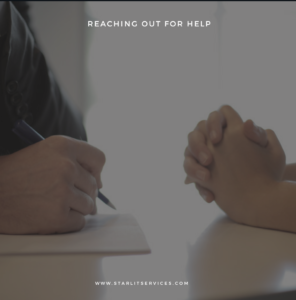Introspection of psychological and emotional well being in the time of crisis, the impact on our mental health and possible interventions.
We are facing a global mental health crisis that has affected most of us and challenged our capacity to cope. The health care and the financial systems are struggling to cope with the overwhelming situation. There is a state of lock down in most parts of the world that has hampered the normal functioning and has affected our thinking, feelings and behavior. We are all adjusting with the way technology and online work and interaction is the sole form of human connection we have. There is a loss of freedom to move and go about and instead, we are quarantined for uncertain amounts of time. This current situation we are in has an impact on our psychological and emotional well being which we haven’t experienced in our lifetime.
Here, we discuss some of these effects, and how it affects the mental health of mental health workers, in particular. Discussed alongside are some ways that can come handy in dealing with them
1. The guilt of not being able to help
Guilt many times, results from an evaluation of
the situation in such a way wherein we hold our selves accountable for the
circumstances. This may lead to self-criticism and self-blame. However, there
are many internal factors such as one’s own health or other external factors
such as a global crisis such as the one we are facing. As a therapist,
especially, working in the field of mental health, we tend to be empathetic and
compassionate and therefore its natural to feel that it is our responsibility
to help others out when the need be.
In a time like this when we are troubled ourselves, is it even fair to put ourselves through even more difficult experiences?
A mental health worker (or otherwise), one needs to accept that there could be situations of crisis or no accessibility, when we cannot always reach out to help. There are factors you can control whereas there will always be those that you cannot. This is the first step to aid shelter oneself from distress and a sense of helplessness and also hopelessness.
2. Protecting one’s boundaries

I can bet that there is a 99.9 % chance that you are at home while reading this. We all are and it has its perks but it also has a lot of irks. Agree with me? While you may (or may not) enjoy being with your family and closed ones, it is clear that we are spending a lot of time at home (confined space) than we are used to doing. In a situation like this, we may experience a breach in privacy and a complete blur of boundaries. By space I don’t just mean physical space but also mental space and time dedicated to our work. We are used to spending a fair amount of time by ourselves either travelling, working or just being out and about. This ‘space’ gives us time to think and reflect and to process emotions.
What can we do now?
It is crucial to be assertive and clear about the space that we need and come to an agreement with our family about its importance. It is important to find the practical ways you would do it. For example, at my home I have been very clear that 11 am to 5 pm is the time I give towards work .
During this I avoid getting involved in any house related task. Of course, I did not just declare it over dinner but very carefully explained it to them. Is it followed 10/10 times? No but at least 8 on 10 times and that’s enough to keep me focused and relaxed.
Especially as mental health workers, it is in a time like this when we are expected to be the ones who should be the pillars of strength.
I experience a surge in the number of people who want to be heard out, which is understandable. But, we need to be clear with how much is comfortable for us and where to draw a line, as otherwise it may cause compassion fatigue.
3. Compassion Fatigue
This a common experience in mental health workers (and for those posing as caregivers at home or are so by nature) especially during a crisis. It can be described as a combination of physical fatigue combined with mental and emotional fatigue, when one is just tired and stressed out from constantly being in the role of the caregiver. This has anadverse effect on our overall health .
That does not mean that one has lost the capacity to empathize and be compassionate. Rather, it simply indicates that there is overexertion of the emotional human capacities and there is a requirement from our system to reset. Some of the common signs are physical and emotional exhaustion, reduced empathy, hypersensitivity and difficulty in sleeping.
How can we address it ?
Firstly, it’s a normal human experience to go through, as oftentimes the quantity of those in need of help can be overwhelming and responsibilities to give care seem to increase. Most importantly it is advisable to be aware when such signs show up and to approach the resulting emotions them in a healthy way. Read on to know how.
4. The soup of difficult emotions:
The current situation is stressful in many ways as it is challenging our coping abilities in many ways. It can cause a ‘stir’ within, and create a soup of emotions, if you will. Needless to say, there is fear and anxiety that is growing parallelly with frustration and anger. To top all that, there is news and constant updates on social media with blaring opinions and personal agendas.
Therefore, coping with all this, naturally is going to be a tough one. I am not here to tell you what to feel and what not to. The reason being, the entire spectrum of emotions is valid. It is not just one or two people but pretty much most of us are confused on the current ‘emotional status’. That is relieving in a sense because it develops a feeling of togetherness.
Therefore, in order to navigate through them, the key is AWARENESS of the feelings which can be approached through introspection, journaling or talking to a therapist. With acceptance they get regulated and even dissolved to a great extent .Secondly it is important to ACCEPT that we are not alone in this experience. Instead of blocking them within or being in denial.
5. Pouring from a half-filled cup (prioritizing self-care):
Making self-care a priority is crucial in the current situation. Engaging in activities that are beneficial to the psychical emotional and psychological well being is one of the best ways to approach a crisis like this one. It’s understandable that there are added responsibilities and expectations at home and maybe work. Nonetheless, we do own a huge responsibility towards our own self. We deserve care and support to be directed towards ourselves and for a lot of us, that is a very alien experience perhaps because of the environment we grew up in.
However, self-care is something that is non-negotiable, because you cannot pour from an empty cup. As a mental health worker especially, one can really benefit from taking some time to tend to yourself and let yourself heal and recover. (For more on ways of coping and self care, refer to our previous blog post)
6. Dilemma of reaching out for help:

Let me begin this part by saying that we live in world that is co-dependent. That means that at various points in time we might need each other. Mental health workers are someone who give an empathetic listening ear and makes a healthy space to talk about deep rooted issues and emotions.
It’s a communication/ relation that gives us a chance to be our authentic self without the fear of judgement and for this can be a great opportunity to reflect and introspect. It is space that we know is dedicated to our growth and well being
As a professional in this field, we may find it awkward to open up in front of a fellow therapist. Oftentimes, in a crisis situation we feel like we have to manage it ourselves. But one of the golden rules of counselling is to debrief. By debriefing I mean reaching out to someone more experienced and sharing a therapeutic bond with a professional that gives you a chance to be authentic . We also deserve all the empathy care and support that we offer others.
7. Financial strain
The finances are affected, drastically. It has impacted people of all walks of life and backgrounds, let’s say apart from people who sell sanitizers. It has caused a financial strain to most of us globally and is therefore a difficult period to go through. A financial crunch may trigger fear and anxiety about a secure future.
This is such a huge topic in itself that it rightly deserves an article on its own but I will keep it short and focus on plausible solutions. There isn’t a magic trick to working this around but there are a few things that can help, like the following:
- Timely planning about the salary or income cut and a clear idea of the extend of loss.
- Managing the remaining resources to high priority areas.
- Finding other sources of income and keeping an eye on various online opportunities to support yourself.
- Upgrading your skill sets and using this time to learn and enhance your skills and expertise for better scope in the future.
8. The road ahead:
Like in any other situation big or small, our coping skills and resilience come to our rescue. These are skills that we learn along life while having faced difficult situations along the journey. If we go by the foundational therapies and theories in psychology, our cognitive patterns and belief systems determine the overall feelings and behavioural patterns.
Since its common to see individuals dealing with feelings of fear and anxiety related to their health and also the future, one can use healthy ways of managing such emotions. There are plenty of coping strategies backed by research that can help to manage anxiety and also the aggression that is experienced .
9. Coping strategies-
- Using the mind – Body connection is an effective way to cope. Our thoughts not only determine our feelings and behavior. But they directly affect the functioning of our bodies and the hormonal system. Therefore, using relaxation techniques like Jacobson’s progressive muscle relaxation (JPMR) technique, mindfulness practices such as mindful breathing and grounding exercises are proven ways to calm down. Plus, it is easy to them at home. This practice helps improve our physical health and mental health.
- Realistic thinking – Realistic thinking is perceiving oneself and the world in a more objective and balanced way without overly thinking in a positive or negative way. Such thoughts are fair and neutral and therefore are a better way to maintain emotional stability
How does one identify and change unrealistic thinking?
Our thoughts have a very strong connection to our feelings and our overall mood and behaviour. Therefore, to effectively manage difficult emotions, it is helpful to manage our unrealistic thoughts based on fear and worry.
| Unrealistic thinking | Realistic thinking |
| ‘ I will never be able to cope with this crisis, I am completely helpless’ | “This is a difficult situation and its hard for me to cope, but I will try a different way next time” |
| “there is no hope for me , I have wasted another day again” | “This is a pandemic and it is a difficult situation to deal with for everybody , I will plan my tomorrow in a better way “ |
| “Everyone will think I am worthless because I failed” | ‘I will not think for others and come to unrealistic conclusions’ |
| “if I make this mistake, I will be a complete failure’ | “I will not make an assessment based on a single incidence; I have many chances to achieve my goal” |
9. Challenging Irrational thinking
There are many ways to challenge irrational thinking and belief system and we will be discussing a few of them. Firstly, I would like to discuss about self-talk or the conversation that we have with ourselves. The talk that we have with ourselves directly reflects our perception of the world, at any given time. Therefore, one of the ways to catch irrational thoughts and challenge them is to be aware of ‘what am I thinking right now?’ or ‘what are the thoughts that are affecting my feelings at the moment’. This gives us an opportunity to analyze and change our thought process.
One of the things that I do with my own thinking is to reflect at different instances and ask myself, ‘how am I doing?’ and ‘how am I treating myself’ this gives me an insight into my internal conversation.
10. Self-compassion and mindfulness (ways to cope):
Both Mindfulness based self-compassion (MSC) and mindfulness-based stress reduction (MBSR) are effective ways in helping us cope with complex emotions and stress of different levels. These proven methods and techniques are based in eastern philosophies and have been redesigned to fulfill our requirements.
They have been proven to positively affect our mental health .Personally, given my training on them, I have often relied upon self-compassion and mindfulness to cope. There are plenty of apps and reliable sources on the internet that help us experience them from our home and enjoy the benefits.
Starlit Ability Enhancement Services Pvt. Ltd. is a very dedicated team of over 60 mental health professionals – Shadow teachers, Comprehensive and Remedial educators and Counselors. To know more about the services we provide, do visit our website at https://www.starlitservices.com/

